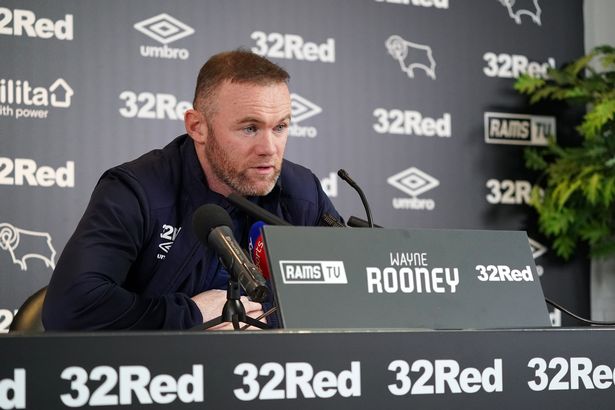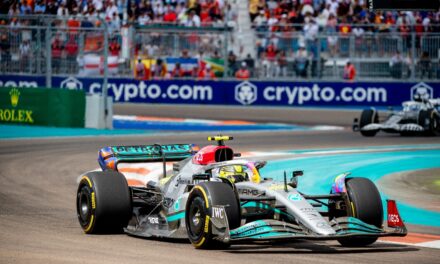Can controversial sponsorship succeed?

It drew criticism from charity groups, industry bodies and Government ministers and has been described as immoral at best and illegal at worst. Why did 32Red engage in such a controversial sponsorship, and did their gamble pay off?
In 2019, former Manchester United and England striker Wayne Rooney signed for Derby County. It was an unlikely transfer, leading to speculation that the club’s sponsor, 32Red, was responsible for financing the deal. This speculation grew and turned to outrage when it was announced Rooney would wear the number 32 shirt to circumvent the existing gambling and sports advertising regulations.
Brand awareness above all else
Despite the controversy, the uproar from charities and condemnation from Government Ministers, the one undeniable truth is that this campaign generated significant brand awareness for 32Red.
The gambling brand’s parent company, Kindred Group, is an experienced sponsor with a portfolio of partnerships spanning multiple brands, geographies, and sponsorship categories. To assume naivety of controversial issues at play on their part is wrong. If the overall primary objective of the partnership was to increase brand awareness, then we must consider the sponsorship successful.
Providing a positive contribution
32Red helped Derby County bring one of the most high-profile English strikers of the Premier League era to the club. This move would not have been possible without their involvement. By doing so, they contributed significantly to the club and the fans’ enjoyment of the event.
This positive contribution will have been rewarded with improved fan/customer perception of 32Red and a significant increase in the likelihood of placing bets with the company. If another of 32Red’s objectives was to generate a financial return, we must again mark this as a sign of sponsorship success.
A risky brand ambassador
The link between the sponsor’s name, 32Red, and the striker’s shirt number 32 turned Rooney into an informal brand ambassador. As such, specific characteristics must be evaluated when considering a brand ambassador. See our brand ambassador checklist article for a more detailed list of points to consider.
Firstly, does this individual help us gain greater awareness amongst our target audience? Is this an individual who embodies the characteristics we champion as a brand? And finally, what is the risk that this individual’s past and future behaviour could negatively impact the organisation?
This last question should have raised all sorts of red flags within 32Red’s marketing and communications department. Wayne Rooney is no stranger to being in the tabloids for all the wrong reasons. These stories and allegations are well documented and have resulted in past sponsors, such as Coca-Cola, pulling the plug. Building close ties between your organisation and an individual with a long list of previous offences opens doors to numerous risks.
Reputational risk
As a gambling company, the story that should have given the most causes for concern was regarding reports in 2017 of Rooney losing £500,000 in two hours in a late-night gambling spree. 32Red will argue that his addiction makes him the perfect spokesperson to highlight the dangers of their product, and maybe that is true. Consider, however, the reputational damage to 32Red if Rooney were to again make the headlines due to reckless gambling.
Unscrupulous values
In sponsorship, we are looking for, amongst other things, partners who share our values. It is not a requirement to be aligned on every point. We must, however, be sure that at no point are we the complete antithesis of our partner’s beliefs.
Financial mismanagement at Derby County was well underway by the time 32Red signed a record-breaking sponsorship with the club. At the time of writing, Derby has been charged with breaching accounting rules, fallen into administration, docked 21 points and relegated from the league.
These consequences result from the club spending beyond its means in a big rule-breaking bet to win promotion to the Premier League. This sort of financial mismanagement would be a severe concern for most brands. When you, as a sponsor, communicate responsible personal financial management, a partnership like this undermines the very core of your message.
To some, the only measure of sponsorship success that truly matters is a campaign’s return on its objectives. If the goal of 32Red’s sponsorship of Derby County was to increase brand awareness and generate a return on investment, then this campaign has succeeded.
Despite this success, the partnership is far from what we consider best practice. Like many sponsorship campaigns conducted by betting brands, there existed little to no brand alignment. Furthermore, the partnership exposed the sponsor to significant reputational risk in this case.
With the Government soon to publish proposed reform to the 2005 Gambling Act, 32Red’s crass and flagrant violation of the regulation may be the legacy of this sponsorship.








